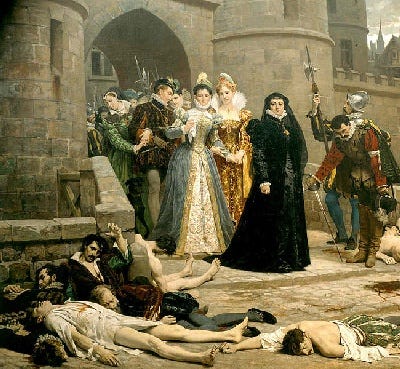Why Question the Protestant Reformation?

A reader asked me, “Would you mind clarifying exactly what your take-away message was in your Reformation post?” I’m happy to oblige.
Popular views about the Protestant Reformation are absurdly sugarcoated. It’s tempting for libertarians to jump on this sugarcoating bandwagon and praise the Reformation as a triumph of religious freedom. But given the staggering body count – not to mention the violent fundamentalism of the leading Protestant reformers – it’s actually a telling counter-example to libertarian optimism. Despite all its oppression, “corrupt” pre-Luther Catholic Europe was far freer than the multilateral bloodbath that succeeded it.
So how’s a thoughtful libertarian to respond? Leading possibilities:
1. Libertarian absolutism. The Protestant Reformation was a disaster, but there’s still an absolute duty to leave religious dissenters alone until they actually start violating the rights of innocent people.
2. It could have been worse. Many millions were killed, but even more would have been killed under continuing Catholic hegemony.
3. In the long-run, it was worth it. Despite a century of horrors, Luther and Calvin unwittingly built the foundations of modern freedom.
4. An exception to religious toleration was warranted. The consequences of the Reformation were so godawful that the Catholic Church (or anyone else) would have been justified in preemptively coercively suppressing it before it endangered the peace of Europe.
5. Libertarian presumptivism. While the Reformation turned out to be a disaster, people at the time could not have foreseen the horrors with sufficient certainty to overturn the libertarian presumption in favor of religious freedom.
Ultimately, I believe #5, but #4 is my second choice.
P.S. Ilya Somin seems to hold a mix of #2 and #3.
P.P.S. Followup from Ilya:
small correction: My view on 2 is not that things would have been even worse under Catholic domination, but that such domination was likely to be seriously challenged by a fundamentalist movement in the 16th century even if Martin Luther had been suppressed early on (or remained loyal to the Pope). I am not actually certain that 2 and 3 are correct. But I give them a much higher probability than you do.
The post appeared first on Econlib.










